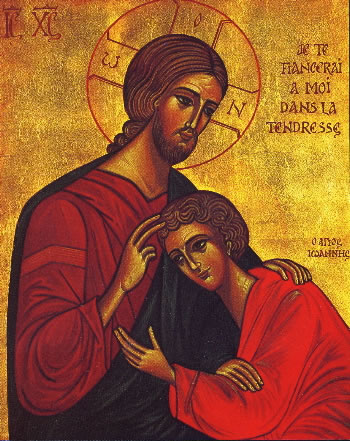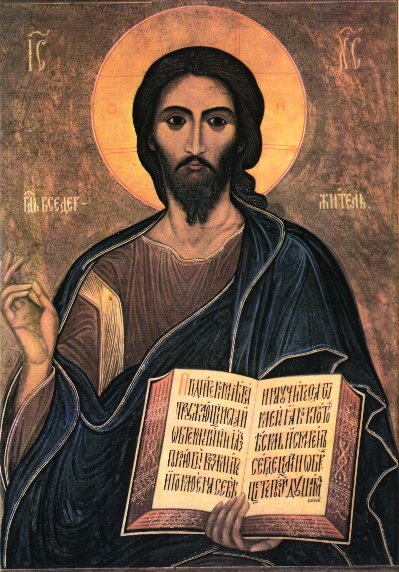John of the Cross
5. Iain Matthew: Encounter

15. The Experience of God I (pages 94-102)
Iain Matthew writes:
• ‘John’s teaching has been directing us to:
- a God who gives himself [Flame],
- the space we make for the gift [Ascent],
- the opening God himself carves for the gift [Night],
- a project which stretches from God’s plan in eternity
to its final fulfillment in heaven [Canticle].’
• ‘Believe, trust, love, and you are receiving the gift.’
• ‘When John seeks an “experience of God”,
he says what he intends by “experience”.
He does not mean “feeling” as opposed to “not feeling”;
he means “reality” as opposed to “mere theory”.
He is not looking for a shot in the arm to brighten a dreary day;
he is looking for a person, with whom he is content to be,
even if the day stays dreary.’
• ‘Believing, hoping, loving, are the only means,
and they are the means by which a person
is directly “united” with God.’
‘John defines love as aligning our will perfectly to God’s.
But in practice that means not aligning it to anything else.’
By faith we know with the Son’s knowing,
and by charity we love with the Son’s loving.’
‘Believe, hope, love, and you are receiving God.’
16. The Experience of God II (pages 103-113)
Iain Matthew writes:
• ‘In John’s dictionary, “faith, hope, love” translate commitment
– above all God’s to us.’
• There is an excess of light, too close to focus.
‘Through believing we possess the light.’
John of the Cross: 'If only, on your silvered-over face, you would
suddenly form they eyes I so long for,
which I bear sketched deep within my heart.’
Iain Matthew writes:
• ‘Memory is ‘the person’s capacity to retrieve, anticipate,
possess the otherwise fleeting moment as her own;
the faculty, then, of possession, of self-possession,
roughly corresponding to what we mean by consciousness.’
• 'Night is a healing of the memory …
It challenges the dominance of our memories over our present freedom.
Night sets us free from enslavement to “was” or to “may be”.
John of the Cross (Ascent III.6.3)
‘The build-up of anxiety or worry
which problems and crises can cause a person
in no way helps to bring about a better situation;
rather, it normally makes matters worse,
and harms the person herself …
It is obviously never any help getting anxious …
To bear it all with calm, peace, tranquility,
not only opens her to many blessings;
it also helps her, in these difficulties themselves,
to come to a better decision
and to apply a remedy that will actually do some good.’
Iain Matthew writes:
‘Hope releases the soul’s fluidity not just “from” but “for” – for what is really meant to fill it. And that is God.’
‘John knows only two realities: the present, and eternity. Hope pulls memory off the suction pads of yesterday
and tomorrow, and cups it upwards in the present.
The “sacrament of the present moment” it is called.
Eternity is bearing down, like an inverted triangle,
upon one point in time only: now.’
‘Worry is not just a pain; it is a tragedy,
because it absorbs in something less
what is meant for something greater.
Hope means easing the mind
of what inflames it or frightens it,
and cupping it upwards to the God who alone can fill it.’
‘Love is God’s activity: “our” love is like a kite,
hanging in the wind of God’s love for us.’
‘Love is our Spirit-given “Yes” to an inpouring God …
The “Yes” of love centres me, unites me to Him at my centre.’
‘John’s vision: a God, constantly gazing at the universe,
personally meeting the eyes of each person in the universe,
with a look that “cleanses, makes beautiful, enriches and enlightens”.
God’s love is creative: it elicits and forms –
“taking her and placing her in Himself, making her like Himself”.
Our love is a Yes to that.’
John of the Cross (Spiritual Canticle Stanza 32):
‘You looked with love upon me
and deep within, your eyes imprinted grace;
this mercy set me free,
held in your embrace,
to lift my eyes adoring to your face.’
17. A Question about Jesus (pages 114-122)
Iain writes:
‘The power unleashed on John of the Cross in the Living Flame
is identified as the vitality of the Risen Christ –
“I live, now not I, but Christ lives in me”.
The letting-go discussed in Ascent has one motive and model:
“love for Jesus Christ”
whose only food was doing the will of his Father (I Ascent 13.4).
The one who enters the space of the purified soul in Ascent
is named as the Son of God (II Ascent 15.4).
And the desperate longing which fuels the pain of night
is disclosed as a need for the Easter Jesus,
on the model of Mary Magdalene anxious at the sepulchre (II Night 13.6-7).’
John of the Cross: Romance [Ballad] 3. Creation as a bride for the Son
The Father to the Son
1. A bride who will love you, my Son, I seek to give you,
who because of You will be found worthy to share our company,
2. and to eat bread at our table the same bread which I eat,
that she may know the good I have in such a Son;
and that she may rejoice with me in Your grace and fullness".
The Son to the Father
3. I thank you, Father, (answers the Son).
To the bride whom you give me I will reveal my splendour.
4. so that by it she may see how great is my Father,
and how the Being which I possess from Your Being I have received.
5. I will hold her in my arms and she will burn with Your love,
and with eternal delight she will exalt your goodness.
Iain Matthew writes:
• ‘That is who Jesus is for John of the Cross,
as he begins [Advent 1577 at Toledo] months of isolation
and bitter disapproval, when everything –
his body, his friends, his sense of purpose,
even the God of his fathers – turns stranger.
In faith, Jesus is the one whom John encounters at his side,
weeping his tears and feeling his anguish,
sweetening what is immeasurably bitter by his spousal love.’

'Come to me, all you that are weary and are carrying heavy burdens, and I will give you rest. Take my yoke upon you, and learn from me; for I am gentle and humble in heart, and you will find rest for your souls.'(Matthew 12:28-29)
18. Jesus, the Experience of God (pages 123-133)
Matthew Iain writes:
• Todo ‘Heaven will be that:
a total entry into the caverns of Christ’s heart,
an infinite space for the Father.’
• Nada ‘It is not enough for Jesus to have said “night”;
it is important in John’s view that he should have
experienced it, since “he is our example and our light”.’
• ‘On the cross, the heart of Jesus became
a massive space for the fire of the Spirit to burn –
free to blaze out “more intense than all the fires in the world”
in Resurrection.’
‘Night means to tell us, not so much what is actually happening
in the night of the spirit, but how it feels.’
‘The nada is Jesus’ emptiness: the darkness that can
eat into human life, with its threat of isolation
and its appearance of chaos, has taken on Christ’s contours.
It has become a space for his Father to fill.’
‘John’s vision commits believers …
to allow Jesus to work out his dying and rising in their lives.’
Jesus:
It is his faith, his hope and his love
that are given me by the Spirit of God.
It is the flame of his love that embraces me.
It is the spring of life welling up in his heart
that wells up in mine.
Jesus’ heart is totally open to God,
and he gives me his heart.